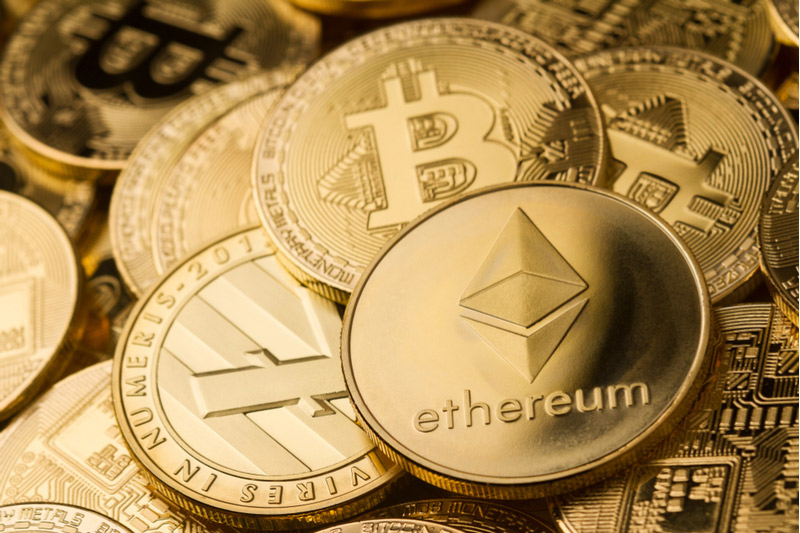The decentralized finance (DeFi) ecosystem continues to expand as more people leverage the benefits of improved market access, lower fees, and non-custodial protocols.
As a broad term defining open finance dApps covering a range of sub-sectors, including swapping platforms like Uniswap, lending protocols like Maker and Aave, derivatives platforms like Synthetix, and so much more, their popularity translates to a higher valuation. Year-to-date, the total assets under management in DeFi protocols have risen over 23X to $24 billion as of late January 2021.
According to one of the leading crypto data provider, CoinCodex the total DeFi token market cap stands at over $35 billion, translating to a 3.45 percent dominance. The most valuable DeFi token, LINK, has a market cap of $9.49 billion. This could be attributed to Chainlink’s central role in connecting most DeFi dApps to vetted, real-world data being the most popular decentralized oracle. Meanwhile, the total trading volumes were up to $13.2 billion on the last day, with a majority (82 percent) of DeFi tokens posting gains versus the USD.
However, while these emerging products and services are deemed more secure than their centralized counterparts, DeFi smart contracts and stablecoins still carry considerable risk. Further, in secondary markets, centralized crypto exchanges account for the vast majority of trading volume. This trend is likely to continue as institutional investors seek out exchanges that meet regulatory requirements. As such, risk mitigation must extend beyond price volatility to consider the security and usability of digital assets held in hot, cold, crypto management apps, or exchange based wallets.
Last November, Bridge Mutual announced the creation of its peer-to-peer insurance platform for DeFi protocols (smart contracts), stablecoins, and centralized crypto exchanges. During the company's recent $1.6 million private sale, there was over $9 million in interest — a figure that reinforces the project's value and utility. Users can access the company's decentralized protocol to provide or purchase insurance coverage for smart contracts, stablecoins, and centralized exchanges. By staking native BMI tokens, insurance providers earn passive yields over time and share profit when people buy insurance. Users can also purchase discretionary insurance instantly using the Bridge Mutual app. In the event of a crash or attack, claimants can submit claims directly through the app.
There are two ways claims are handled: automatically or through the use of a multi-phase voting process. At this time, stablecoin claims occur automatically given readily available price feeds. If the price of a stablecoin drops below a specified threshold, anyone with an active policy can make a claim and receive reimbursement up to their policy maximum.
For claims arising from losses via smart contracts or exchanges, the multi-phase voting process is in use. This decentralized autonomous organization (DAO) of BMI token holders relies on rewards and punishments to encourage legitimate claims voting. Also, all votes are made blindly and written to the blockchain simultaneously, which prevents collaboration. Participants face two outcomes: voting honestly leads to very high rewards, while dishonest voting results in exponentially greater punishment depending on how far into the minority you are voting.
While other decentralized insurance protocols utilize similar mechanisms, unique infrastructure sets Bridge Mutual apart. Most notably, the project uses the Polkadot network protocol, which reduces gas fees and improves voter participation. As a non-custodial platform, the company doesn't control how funds are managed or reinvested, nor does it require KYC. Meaningful engagement with the protocol is also encouraged by bringing context to claim outcomes, tracking DAO members' voting history, and the lack of a central advisory board. Finally, Bridge Mutual is the only decentralized insurance protocol that offers coverage for stablecoins and centralized exchanges.
“Our system is entirely non-custodial (we never have control or access over any user's funds in the system), and we do not personally dictate how funds are reinvested on the platform. Long-term, we intend to completely revolutionize how insurance works. Currently, insurance is adversarial and expensive. You pay an insurance company money for a policy, and when it comes time to pay on your claim they do everything they can to deny the claim or pay you as little as possible. In some cases, you even have to fight in court for a payout. It's a broken system that would benefit a lot from decentralization,” says Mike Miglio.
